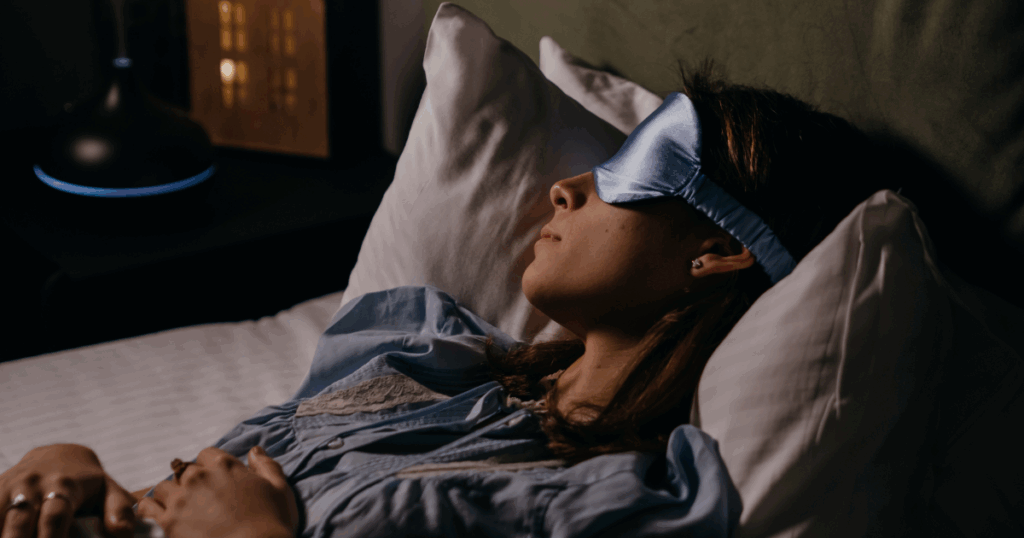Hey there, beautiful soul —
If you’re a woman over 40 who feels like a good night’s sleep is becoming more and more like a distant memory, you are not alone. Trust me — as a family nurse practitioner who has walked this road with many amazing women like you, I get it.
The good news? You have more power than you think to take back your nights — and wake up feeling like the strong, vibrant woman you truly are.
Today, let’s talk honestly about the common reasons why sleep gets tricky after 40 — and even better, what you can do about it.
Why Is Sleep So Hard Sometimes?
Sleep problems can sneak up on us for a lot of reasons. Hormonal shifts. Life stress. Aching joints. Even breathing troubles we don’t realize we have. It’s frustrating — but it’s also your body’s way of sending you a message: “Hey, I need a little extra love and attention.”
Let’s dive into some of the most common reasons women over 40 struggle with sleep — and, even more importantly, how you can reclaim peaceful nights.
Coping With Overwhelming Stress
Let’s be real — life after 40 can be busy.
Maybe you’re balancing a career, caring for aging parents, supporting kids, and grandkids, or simply managing everything life throws at you. That pressure can build up — and it can rob you of your precious rest.
When you’re stressed, your body produces more cortisol — the “stress hormone.” High cortisol at night keeps your mind racing and your heart pounding when you should be winding down.
But here’s the empowering truth:
You can take small, powerful steps every day to calm your body and mind.
Stress doesn’t have to own you. You can learn to manage it — and sleep better because of it.
Simple, Effective Ways to Lower Stress Before Bed:
- Create a calming nighttime routine: Take 30 minutes before bed just for YOU. Light a candle. Read a comforting book. Listen to soothing music.
- Journal it out: Spend 5–10 minutes writing down worries. Then, close the journal — and mentally put the day to bed.
- Practice deep breathing: Inhale for 4 counts, hold for 4, exhale for 6. Repeat. It signals your nervous system that it’s safe to relax.
- Try gentle stretching or yoga: Movement helps release built-up tension.
- Seek support: You are never weak for reaching out. Talking with a therapist, coach, or trusted friend can be life-changing.
Remember:
Reducing stress is not selfish — it’s essential to your health, happiness, and ability to show up in your life.
Overcoming Hormonal Changes
Ah, hormones — those tiny messengers that sometimes make us feel like we’re riding an emotional rollercoaster without a seatbelt.
In your 40s (and beyond), hormonal shifts — like decreasing estrogen and progesterone — can cause:
- Hot flashes
- Night sweats
- Mood swings
- Difficulty falling asleep
- Waking up several times during the night
It’s not in your head — it’s in your biology.
But again, you are not powerless.
Hormone-Smart Sleep Strategies:
- Cool your bedroom: Keep it around 65°F (18°C) and use lightweight, breathable sheets.
- Layer your bedding: That way, you can easily throw off a blanket if you get too hot.
- Limit caffeine and alcohol: Especially in the afternoon and evening. They can trigger hot flashes and disrupt sleep cycles.
- Support your hormones naturally: Foods rich in magnesium, calcium, and vitamin B6 (like leafy greens, almonds, and bananas) can help balance hormones.
- Talk to your healthcare provider: You might benefit from options like hormone therapy, natural supplements, or lifestyle tweaks tailored to your needs.
You are entering a powerful new season of life.
It’s about adapting, honoring your changing body, and giving yourself grace.
Managing the Pain From Arthritis
One thing many women over 40 deal with — sometimes quietly — is arthritic pain.
If your hips, back, knees or hands ache at night, it’s no wonder sleep feels elusive. Pain interrupts the deep, restorative sleep your body craves.
But hope is not lost. You deserve relief — and you can find it.
Smart Pain Relief Tips for Better Sleep:
- Upgrade your mattress: A sagging, old mattress can worsen joint pain. Invest in a firm, supportive mattress that keeps your spine aligned.
- Use pillows strategically: Tuck pillows between your knees or behind your back for extra joint support.
- Stay active during the day: Low-impact exercises like swimming, biking, or gentle yoga can strengthen muscles and reduce stiffness.
- Use heat therapy before bed: A warm bath, heating pad, or warm towel can soothe aching joints.
- Consider natural therapies: Massage, acupuncture, and even turmeric supplements (with your doctor’s approval) can help ease inflammation.
And don’t be afraid to speak up — if pain is stealing your sleep, partner with a healthcare provider to create a personalized treatment plan.
You deserve to rest deeply and wake up feeling good in your body.
Overcoming Breathing Difficulties
Another hidden sleep thief for women over 40? Sleep apnea.
Many people think sleep apnea only happens to men or to people who snore loudly — but that’s not true. Women can have sleep apnea, and often it looks like:
- Waking up gasping or choking
- Morning headaches
- Constant exhaustion even after a full night’s sleep
- Mood swings and irritability
- Dry mouth in the morning
If untreated, sleep apnea can seriously harm your brain, heart, and overall health. But once diagnosed, it’s manageable.
What to Do if You Suspect Sleep Apnea:
- Talk to your provider: You may need a sleep study — either at home or in a clinic.
- Get the right treatment: Many women with sleep apnea benefit from using a CPAP machine (Continuous Positive Airway Pressure). It keeps your airways open while you sleep.
- Lose a few pounds if needed: Sometimes even a small weight loss helps relieve airway pressure.
- Sleep on your side: Sleeping flat on your back can worsen apnea symptoms.
Taking action is an act of self-love.
Your body deserves steady, healing breaths all night long.
Bonus Tips for Better Sleep After 40
Here are a few more golden nuggets you can weave into your life starting tonight:
Build a Sleep Sanctuary
- Reserve your bed for sleep and intimacy only — not for scrolling your phone, worrying, or working.
- Make your bedroom dark, cool, quiet, and cozy.
- Use blackout curtains or a sleep mask if needed.
Create a Consistent Sleep Routine
- Go to bed and wake up at the same time every day — even on weekends.
- Give yourself a “wind-down” period 30–60 minutes before bed.
- Avoid screens (phone, TV, laptop) at least one hour before sleep — blue light confuses your brain into thinking it’s daytime.
Be Mindful of What You Eat and Drink
- Avoid big meals right before bedtime.
- Sip calming herbal teas like chamomile, lavender, or lemon balm.
- Stay hydrated — but cut off fluids 1–2 hours before bed to avoid nighttime trips to the bathroom.
A Final Word of Empowerment
Dear beautiful woman reading this:
Your sleep matters. You matter.
You deserve to wake up feeling rested, strong, and joyful.
You deserve to close your eyes at night without dread — and open them in the morning feeling hope.
You have walked through so much in your life already — and you have the wisdom, the resilience, and the power to overcome sleep challenges too.
If you take away one thing today, let it be this:
Your best, most energized life is still ahead of you — and it starts with one peaceful night at a time.
Believe in your body’s ability to heal. Believe in your worthiness of rest. Believe in yourself.

